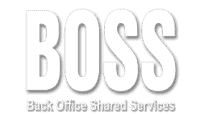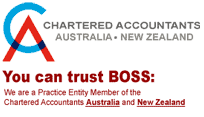Are you prepared to make the transition into the realm of outsourced accounting?
Mobile devices that can now do anything, have emerged from their humble beginnings as cell phones. Traditional office practices are currently transforming into a paper-free approach right before our eyes. It wasn’t too many years ago that tablets were seen merely as gadgets for fun – yet in 2024, according to the Global Digital Report, 46.1% of all Australian internet-users aged 16~64 own a tablet, a 4.8% growth from 2023.
The most significant transformations in accounting services are being driven by advancements in technology.
Clients and Outsourced Accountants
We have been transitioning to a paperless environment for quite some time – individuals now submit their income tax returns online, and international transactions are completed without the use of physical currency. In 2024, 45% of e-commerce volume in Australia came from purchases on mobile devices.*
In the past, accounting firms would send a representative to meet with clients and discuss their options, which was often a lengthy process. Nowadays, an entire financial plan can be established and virtually approved within a fraction of the time.
Companies providing specialised cloud based accounting like Xero and Saasu are gaining significant traction. As an indication of future trends, global firm Deloitte is expanding into the “private client” market by targeting small-to-medium enterprises (SMEs) and entrepreneurs through its Deloitte Private division while leveraging technology such as Deloitte Private Connect. This platform delivers innovative cloud features including real-time management reports, notifications, online payment approvals, and inquiries all from one centralised interface.
The finance industry is already swapping out traditional binders and paper clips for cloud storage solutions. Are you staying competitive?

The Advantages of Outsourced Accounting
Clients clearly enjoy significant advantages, primarily in terms of convenience and speed. There is no longer a need to prepare everything for their reliable accountant at tax time—transactions are stored electronically and can be easily accessed.
For businesses, their bookkeeping can be continuously updated and shared with their accounting firm, ensuring they have immediate access to current financial data whenever needed.
However, the benefits extend beyond just clients. A paperless work environment results in lower overhead costs and a reduced need for personnel. By outsourcing accounting work, these expenses can decrease by nearly 50%. This cost reduction enables firms to offer competitive service fees to attract potential clients.
Moreover, it is now feasible to manage a professional firm remotely—eliminating costly office leases—and several new firms are successfully adopting this model.
In a digital landscape, your firm is no longer just a Sydney or Melbourne entity. Instead, you become part of an Australian firm, with the potential to extend your reach across the entire nation in pursuit of new clients.
As automated systems and bank integrations streamline data processing, traditional physical audits may soon become obsolete – regulatory agencies will signal concerns by flagging specific parameters. When a business’s or individual’s information crosses these defined electronic thresholds, alerts will trigger enabling government officials to probe matters directly from their own offices.
While this may not initially seem like it offers “benefits,” raising questions about the future of accounting firms as we know them today is understandable—doesn’t this indicate their demise?
The answer lies in transformation: accounting firms known today might change significantly; however, accounting practices won’t disappear altogether. The ones that adapt during this shift will be those who transition away from conventional methods and embrace the realm of technology-driven solutions.
Reimagining Virtual Relationships as Strong Connections
As previously noted, accountants now enjoy immediate access to their clients’ financial data. Similar to government audit agencies, accountants and their clients can collaboratively establish specific warning signs – for instance, if an expense drops below a certain threshold and the business hasn’t generated a predetermined revenue within the month, it’s time to explore alternative strategies.
Accountants are evolving into roles akin to that of a Virtual CFO, proactively eliminating financial risks before they arise and assisting businesses in swiftly identifying opportunities for growth. Which small or medium-sized enterprise wouldn’t value this?
Gone are the days when you were merely the number-cruncher sorting through piles of receipts; you’re now positioned as a strategic business advisor.
The Crest of the Wave – Mastering Effectiveness in the New Accounting Landscape
Identify Your Niche – From a client’s viewpoint, there’s nothing more reassuring than a firm that tailors its services to their specific needs. While specialising in a narrow field might have posed challenges for survival just 15 years ago, today’s social media landscape allows you to target clients across an entire nation.
Do you possess insights about a unique segment of the accounting industry that software cannot address—such as for example accounting related to hospitality or the sporting industry? Proclaim your expertise boldly and clearly.
Enhance Your People Skills – Given the influence of social media and the digital realm, you’re likely to engage with many more potential and current clients than ever before.
If you’re not currently engaging with social media platforms like Facebook, Twitter, and LinkedIn, now is the time to start.
Should technology not pique your interest personally, consider bringing on a social media expert as your next strategic hire.
With more than 9 million active users in Australia on Facebook alone, there’s a tremendous opportunity for you to capture their attention.
Act Fast – Your company needs to respond swiftly to keep pace with rapid changes. A heavy bureaucratic structure will only slow you down.
Firms that rely solely on compliance work are bound to fade away; it’s just a matter of time. Those that transition into the role of business advisors and fully embrace technological advancements will prosper.




